Sell space and lifestyle like Starbucks? Maybe in the end, it's an emotion.
For professional baristas, please follow the coffee workshop (Wechat official account cafe_style)
"once upon a time, horses and chariots were slow, letters were far away, and there was only enough to love one person in his life."
Now, the economy is developing rapidly, but the society is in vogue to "strive for speed". However, fast-paced life exposes many people to many challenges-high stress, overload, the sense of asphyxiation caused by constant acceleration and the constant struggle to find a better way to deal with it. As a result, in the fast-paced era, more and more people begin to seek the third space other than "non-home, non-office" to experience slow life as an antidote to fast-paced life.

When it comes to the third space, most people think of Starbucks.
As for people's living space, "Star Dad" seems to have a lot of research. Starbucks founder Howard Schultz believes that the first space for people's survival is home, the second space is the office, and the third space corresponding to Starbucks is another place. It is in a kind of "non-home, non-office" middle state, and it is a space for consumers to feel relaxed and relaxed.

In terms of the development process of the industry format, different consumer demand will give birth to the corresponding business model, which can be divided into three stages: the first stage selling products, the second stage selling brands, and the third stage selling lifestyle. "I am not at Starbucks, on my way to Starbucks", conveys an enviable attitude of "petty bourgeoisie life", but it also proves the success of Starbucks in selling space and way of life.
The success of "Star Dad" seems to bring some new inspiration to the industry. perhaps while selling products, we can sell space for in-store drainage, or open a "coffee +" shop to sell a way of life. Of course, the same inspiration is also applicable to the cosmetics industry, especially for single cosmetic stores and small shops, how to use the way accepted by consumers to make consumers feel their culture and enhance their sense of identity. and then output its brand value, leave a mark in the hearts of consumers, is the direction that cosmetics stores should think about.
Selling space? Strengthening the "sense of immersion" is the key
The success of the "Star Dad" business model has attracted a large wave of "imitators", and many brands have begun to sell space and lifestyle like Starbucks, but simple copy and paste is not a long-term way to survive. If you want to imitate "Star Dad" to sell space, the key is to learn to strengthen the "sense of immersion" in the store. This is especially true for the cosmetics industry, when the cosmetics industry is in the seller's market, providing consumers with high-cost products is conducive to their competitive advantage. However, with the continuous upgrading of consumer demand, how to provide customers with more additional services and strengthen the sense of immersion and experience has become an important factor for enterprises to overcome homogenization. In this context, the cross-border operation of the beauty industry arises at the historic moment.
Nowadays, there are many ways of cross-border cooperation in the beauty industry, but it is the cross-border operation of beauty coffee that allows consumers to experience a slow life in a fast-paced era. In the cosmetics industry, the alliance with coffee is no longer a new topic. It is reported that the earlier successful case is Yue Shi Fengyin. In November 2015, INNISFREE opened a flagship store in Shanghai, China, which combines makeup, coffee and leisure, and has become a gathering place for new young people on Shanghai's Nanjing Road. The small and fresh style of decoration design, selfie, manual interaction and so on, all strengthen the brand's "sense of immersion". The flagship store of beauty makeup and coffee is not only advertising for the brand, but also exporting its cultural value.

Yue Shi Feng Yin Shanghai single Brand flagship Store

Green plants can be seen everywhere in the store.

Since Yue Shi style became popular with the concept of "single-brand store + coffee", the trend of "coffee +" has not stopped. More and more beauty brands have set up coffee shops, and consumers no longer have to go to Japan and South Korea to find such stores. For consumers, it is not only one more place to drink coffee, but also increases their chances of playing with make-up. As for cosmetics stores, they carry out a kind of "immersion" education for consumers by selling space or a way of life.
For example, organic beauty brand Patom has opened its new store in the Mann Thonglor residential area, which has always been a gathering place for young people, international cuisine, trendy bars and avant-garde lifestyle shops. Patom's positioning of the new store is an organic living hall.
It is understood that the facade of this store is made of glass, and the museum includes shops, showrooms and small cafes for body care products. Nita Yuvaboon and Prow Puttorngul, two founders of NitaProw, believe that a cafe in a glass house can create a sense of interaction and convergence between the inner and outer spaces, whether in a store or passing by, reminiscent of green, ecology and other key words related to the Patom brand.


In addition, in the adjoining garden, Patom plans to create a public space for seminars on topics such as green ecology and sustainable living, or to become a farmers' market for local farmers selling fresh organic produce. It can be said that Bangkok, a cafe in a glass house, sells makeup, food, experience and space. The design of the house, the layout of the space and the surrounding environment are very conducive to the "immersion" education of its brand to consumers.

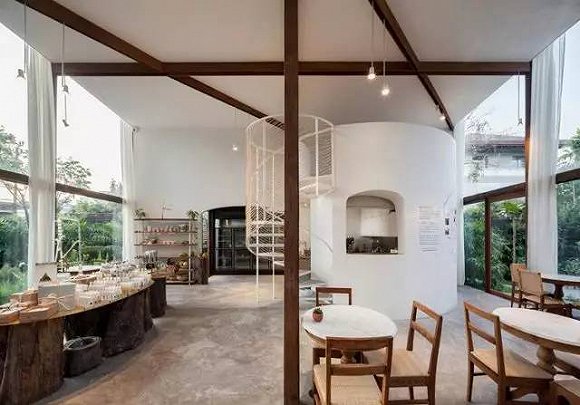
It is reported that in June 2017, the world's first "New York"-themed COFFEE HOUSE of the Koyan brand will open in Taipei, when the store will be unveiled in the form of a "skincare counter plus coffee shop". The store will adopt the design of the store, black and white lines with wooden tonal packaging, and customers will receive skin care consultation while enjoying coffee and desserts. This time, Keyan will focus on the coffee shop, which can be regarded as a way to drain the inside of the store. At the same time, consumers who enter the store can also sit down to experience and understand their products, strengthen the sense of immersion and experience by selling space, and leave a unique brand in the hearts of consumers.

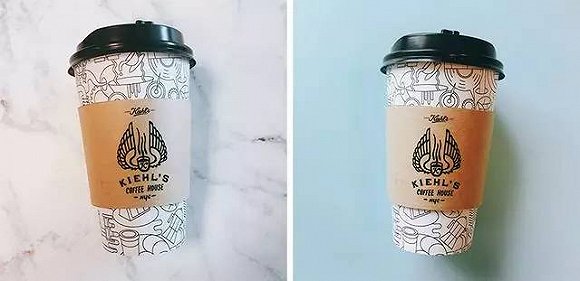
Whether it's a single-brand store like Yue Shi Fengyin, setting up a coffee area in the store, or a makeup shop like the Beauty Cafe with the concept of "skin beauty experience", they all provide consumers with an opportunity to have close contact with cosmetic products that have not yet been purchased, and can also solve the embarrassing problem of some consumers standing in front of the counter, "either buy or go away." even if you don't buy it, you can drink coffee. Maybe I want to buy it after drinking it!
The combination of coffee and cosmetics not only exists in single-brand flagship stores, for some cosmetics stores, single stores, but also combined with their own consumer class, to make some new attempts.
However, the transformation of Chinese beauty shops should not blindly imitate the way of "coffee plus", and should not stay at the level of "ignorant and fearless majority", but should proceed from the needs of consumers and dig deep into the intrinsic value of the brand. let consumers spontaneously "slow" down and stay.
"afternoon tea + offline experience shop" may become a popular mode.
As the "third space" that can be shoulder to shoulder with "Star Dad", the value of the cafe has long exceeded people's original imagination. In this context, a variety of specialty cafes focusing on market segments have also begun to rise. For example, garage coffee, skin care products counter coffee shops, more and more brands are gradually opening "coffee +" stores. Coffee and tea have been seen as a medium for conveying life scenes, including informal meetings, socializing, waiting or pauses between loitering. Consumers are mostly willing to pay for a drink for fragmented time.
Think about it: if the afternoon tea-style social scene sinks to the third-and fourth-tier cities in China, what commercial value can be tapped besides catering? Is it just selling drinks? Or sell space and lifestyle? Or is it like "Star Dad" selling coffee to sell afternoon tea?
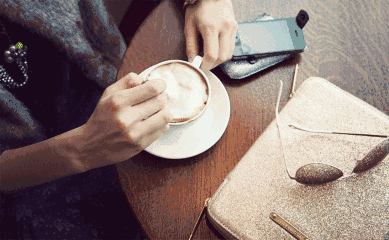
Some people think that it may be possible to try to create a "afternoon tea + offline experience store" model. It is understood that Liu Lu, founder of AimeeLu, a beauty and skin care brand active on the online platform, opened a cafe with the theme of skin care experience in Loudi, Hunan Province. Try to go offline and break the deadlock he faces under his WeChat business identity.
AimeeLu uses "cafes that can share afternoon tea with girlfriends" to impress some potential customers in third-and fourth-tier cities, enhance consumers' brand image with comfortable environment, relaxed atmosphere and fashionable experience, strengthen consumers' sense of experience and immersion, and promote their perceptual consumption of cosmetics. In the museum, consumers can experience skin care products while enjoying coffee desserts, both online and offline. This model enables the cosmetics industry not only to open specialty stores and online sales, but also to combine with afternoon tea, providing consumers with a place to experience slow life in a fast-paced era, and at the same time, it also helps to leave a brand impression in the hearts of consumers and enhance the intrinsic value of their brands.

The mode of "afternoon tea + offline experience store" effectively solves the difficulty of "separation of product and consumption" in promotion to a certain extent. Under this model, it is helpful to establish a new brand image in the hearts of consumers; by giving consumers close contact and understanding of skin care products, they can strengthen their sense of experience and enhance their desire to buy.
However, whether it is cosmetics chain stores, franchised stores, or single cosmetics stores or small shops, if you want to try the "coffee plus" approach, you need to avoid the misunderstanding of "obvious sales purpose". The effective integration of products and scenes and the development of some products with their own brand value in the store is the direction of the transformation of cosmetic shops. It is important to know that the reason why consumers enter the cafe lies in the free and comfortable social environment provided by the cafe. In addition, the design of the space, the choice of coffee and the layout of the scene all need to be specialized and consistent with the tone of the product.
Whether it is a humanized display rack in the store or a display way that fits the psychology of consumers, the transformation of cosmetics stores is ultimately to "move" to link with consumers, promote consumers' perceptual consumption, and realize the ultimate significance of brand marketing. Therefore, cosmetics stores should proceed from the needs of consumers and provide consumers with more "intimate" services, in order to have real interaction with consumers and let them "stay" voluntarily.
Maybe it's time to play the emotional card like Starbucks?
A brand, whether it is selling products, space, sense of experience, or way of life, its ultimate goal should be to get the value and emotional recognition of consumers, so that there is a certain emotional relationship between brands and consumers.
In other words, stores with real emotional demands may be easier to impress and retain consumers.
Starbucks, which suffered from the impact of e-commerce and suffered a midlife crisis, seems to have a lot of feelings about this.
Earlier, Holder Schultz, former chairman and founder of Starbucks, said in a speech at Tsinghua University, "because of Amazon, Alibaba and other enterprises, every physical store has to be changed because of online e-commerce." this means that the retail industry needs a big adjustment, many brick-and-mortar stores will close, and we must create better, emotionally appealing and romantic stores. "
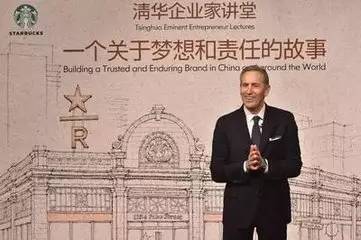
To this end, Starbucks played an emotional card, launching Starbucks "Global selection" and "Coffee Roaster" to meet the coming midlife crisis. By doing content, moving customers with "heart-to-heart strategy" and building emotional ties with consumers, so as to cultivate customer loyalty.
It is reported that Starbucks will open a Starbucks coffee roaster and selection restaurant in Shanghai at the end of 2017. So, what exactly is the so-called "coffee roaster"? And how does it reflect its emotional appeal?
As early as 2014, Starbucks opened a "coffee roaster" (Seattle, USA). It is understood that the store has two coffee bars, an opinion-themed store, a transparent coffee roasting kitchen and a library, covering an area of 15000 square feet. In the workshop, consumers can see the whole process of brewing coffee up close, they can choose hand-brewing, legal pressing and other cooking methods, and they can also taste desserts, salads and other dishes jointly launched by Starbucks and local chefs. The layout of the whole environment in the store, coupled with the cultural atmosphere created by the library, makes consumers deeply infected, let them enjoy and form a good interactive experience with the brand. By creating a coffee bakery, Starbucks has strengthened the core value of its original brand, expanded the emotional relationship between consumers and the core value of the brand, and realized the emotional demands of its stores to a certain extent.

Seattle Coffee Bakery location
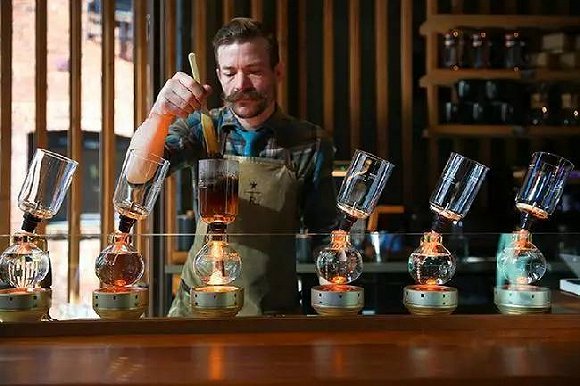
In-store baristas make coffee in a special way.

Seattle Coffee Bakery Bar
Starbucks uses the "emotional card" to meet its midlife crisis. It seems to be a wake-up call for the cosmetics industry, which is "suffering from the cold winter of retail". Perhaps while focusing on selling brands and products, you can make some changes in the store and try to perform an "emotional play" with consumers.
Whether it is the way of "coffee plus" or the model of "afternoon tea + offline experience store", it can be regarded as some tentative transformation made by the cosmetic industry in the context of consumption upgrading, and its real purpose is to create a space to create more connections with consumers, to find a point that can resonate with consumers, and then to achieve an emotional connection between them and consumers.
However, in this "emotional drama" of cosmetics stores, we must pay close attention to the core value of the brand, starting from the needs of consumers.
With the improvement of living standards, more and more attention has been paid to the emotional needs of human beings. when consumers buy products, they are more inclined to the spiritual needs and pay more attention to the pursuit of spiritual and emotional values. So maybe it's time for cosmetics stores to play the "emotion card" like Starbucks. In the subsequent development, we might as well try a new business model to create physical stores with emotional demands and consumer value recognition, so as to strengthen the core value of the brand and expand the emotional relationship between the brand and consumers at the same time. The above is only small C to provide a direction, ideas, as for cosmetics stores in the final form to do, or to combine its own characteristics and the needs of the consumer class.
Important Notice :
前街咖啡 FrontStreet Coffee has moved to new addredd:
FrontStreet Coffee Address: 315,Donghua East Road,GuangZhou
Tel:020 38364473
- Prev
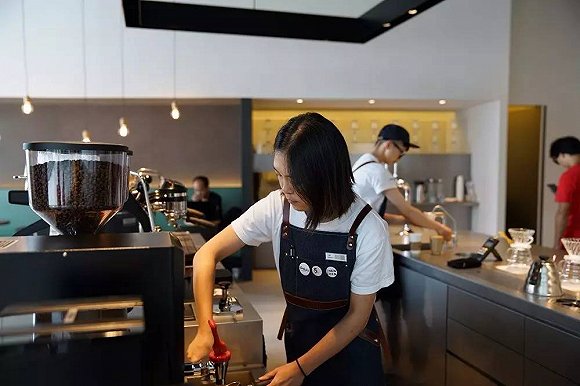
Exclusive interview with the founder of Seesaw: revenue depends almost entirely on coffee, and it will go to 20 stores this year.
Professional barista exchange please follow the coffee workshop (Wechat official account cafe_style) ▲ Seesaw coffee founder Zong Xinguang opened 20 stores before the end of January. A few days ago, boutique coffee brand Seesaw received an investment of 45 million yuan from Baifu Holdings of Hony Capital, with a valuation of more than 200 million yuan. Of course money is important. But there is also a very important point is the ability of capital endorsement.
- Next
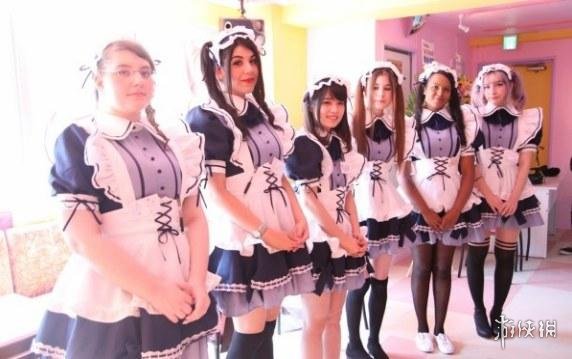
The painting style is not right! Akihabara foreign maid coffee shop girls are too strong to complain ~
For the exchange of professional baristas, please follow the coffee workshop (Wechat official account cafe_style) in the island's two-dimensional culture, the maid is a very representative role. Would you like some rabbits today? In works such as the Dragon maid of the Kobayashi family, very lovely maid roles have appeared. In the impression of most netizens, girls in maid costumes are more
Related
- What documents do you need to go through to open a coffee shop? coffee shop coffee shop certificate processing process
- How to purchase Coffee beans in small Cafe how to choose a suitable supplier for domestic Coffee supply Company
- How to drink Starbucks Fragrance White Coffee? how to make Australian White Coffee? what Italian coffee beans are recommended?
- The Story of Flora Coffee: the name of Flora Coffee Bean and the implication of the Flowers on Florna Coffee
- How much does a cup of coffee cost? How much is the profit of a cup of coffee? What is the profit of the coffee shop in a year?
- Yunnan small Coffee, known as "fragrant Coffee", introduces the characteristics of Alpine Arabica Coffee producing areas in Yunnan, China
- 2023 latest Starbucks full menu price list how much is a cup of Starbucks coffee what is better to drink the most popular hot and cold drinks recommended
- Starbucks different kinds of Coffee Price list Starbucks menu 2023 Top Ten Best drinks in Starbucks
- Starbucks Spring praise Comprehensive matching Coffee Bean theme Story Packaging implication and taste description
- The cost of a cup of coffee latte American coffee cost price and selling price

